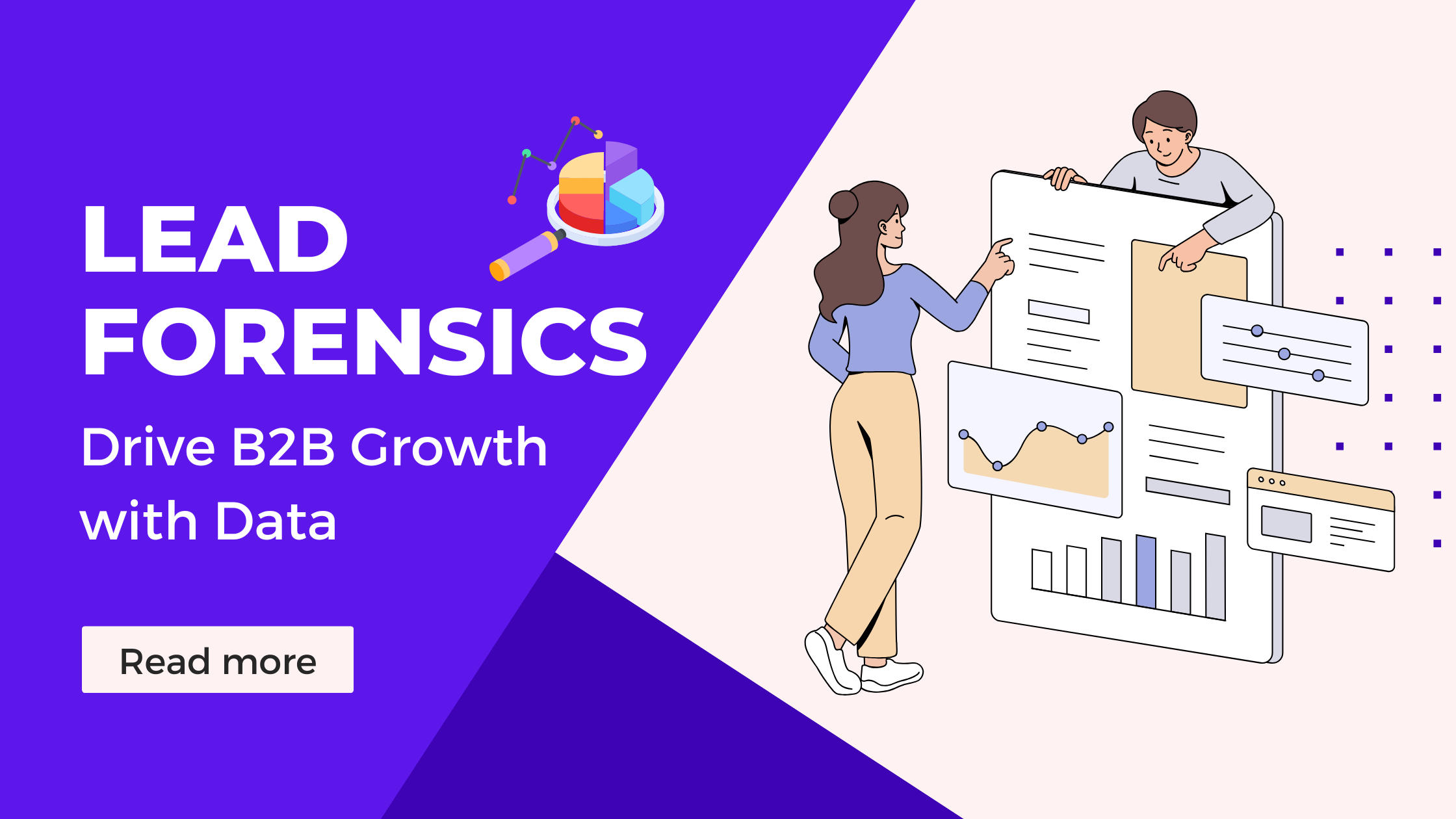Table of Contents
ToggleWhat Programming Language Should I Learn in 2025
When it comes to what programming language should I learn in 2025 , it’s essential to consider your goals and interests. If you’re looking to get into web development, languages like JavaScript, HTML, and CSS are great starting points. For general-purpose programming, Python is often recommended due to its simplicity and wide use in various fields such as data analysis, AI, and automation. It’s beginner-friendly and has a large supportive community, making it an excellent choice for newcomers.
For those interested in mobile app development, Swift for iOS or Kotlin for Android are the go-to options. Java is also a solid choice for its versatility and use in large-scale applications. Ultimately, the best language depends on your career goals—whether it’s building websites, mobile apps, or working with data. It’s a good idea to start with a language that aligns with the projects you want to work on.
What is a Programming Language?
A programming language is a formal set of instructions used to communicate with computers and create software applications. It serves as a bridge between human intentions and machine execution, allowing developers to write code that computers can understand and process. Programming languages use specific syntax and rules to define operations, logic, and data management, making them essential for developing everything from websites to mobile apps and complex systems.
There are different types of programming languages, such as high-level and low-level languages. High-level languages like Python, Java, and JavaScript are user-friendly and easier to learn because they are closer to human language. Low-level languages, such as assembly and machine code, are closer to the hardware and are used for performance-critical tasks. Each programming language is designed for specific tasks, enabling developers to build software that meets various needs. What programming language should i learn? Start exploring the top options now!
Main Types of Programming Languages
- Procedural Programming Languages
- These focus on a sequence of instructions to perform tasks.
- Examples: C, Pascal, Fortran.
- Object-Oriented Programming Languages (OOP)
- They organize code into reusable objects that represent real-world entities.
- Examples: Java, Python, C++.
- Functional Programming Languages
- These emphasize functions and immutable data over changing state.
- Examples: Haskell, Lisp, Scala.
- Scripting Languages
- Used for automating tasks and creating dynamic web content.
- Examples: JavaScript, PHP, Python.
- Markup and Query Languages
- Designed for organizing, presenting, or querying data.
- Examples: HTML, XML, SQL.
- Low-Level Languages
- Provide direct control over hardware and are close to machine code.
- Examples: Assembly, Machine Language.
Each type of language is suited to specific tasks, so choosing one depends on the project requirements and goals.
What Programming Language Should I Learn in 2025? How to Choose?
When deciding which programming language to learn, consider the following factors:
- Your Experience Level: If you’re just starting, choose a language that’s beginner-friendly. Languages like Python and JavaScript are great for newcomers due to their straightforward syntax and strong community support.
- Your Goals: Think about what you want to achieve with programming. For example, if you’re interested in web development, JavaScript is essential. For data science or automation, Python is a top choice. Identifying your end goal will help narrow down the options.
- Demand and Resources: Popular languages like Python, Java, and JavaScript have extensive resources, active communities, and are highly sought after in the job market. Learning a widely-used language can make it easier to find support and opportunities.
- Industry Trends: Research the trends in the industry you’re interested in. For example, Swift is widely used for iOS app development, while Kotlin is popular for Android apps. Choosing a language aligned with current trends can give you an edge in specific fields.
- Compatibility and Tools: If you’re planning to work with specific technologies, frameworks, or platforms, pick a language that is compatible with them. For example, C++ is a great choice for game development using Unreal Engine, while PHP is commonly used for WordPress websites.
| Programming Language | Learning | Community Size & Support | Typical Applications | Documentation Quality | Job Market in the UK | Estimated Entry-Level Salary (UK) / Yearly | Resources to Learn |
|---|---|---|---|---|---|---|---|
| Python | 5/5 (Very Easy) | 5/5 (Huge) | Data Science & Machine Learning. Web Development (Django, Flask) Automation & Scripting | 5/5 (Comprehensive) | High Demand | £25K – £35K | Free Learning Resource |
| Java | 3/5 (Moderate) | 5/5 (Huge) | Enterprise Backend Android App Development Financial Services | 4/5 (Extensive) | High Demand | £28K – £38K | Free Learning Resource |
| Javascript | 4/5 (Accessible) | 5/5 (Huge) | Frontend Web Dev Backend (Node.js) Full Stack Web Applications | 4/5 (Well-structured) | High Demand | £25K – £35K | Free Learning Resource |
| TypeScript | 4/5 (Accessible) | 4/5 (Growing) | Large-scale JS Apps Frontend & Backend (Node.js) Safer JavaScript Dev | 4/5 (Clear & Detailed) | High Demand (Growing) | £28K – £38K | Free Learning Resource |
| C# (C Sharp) | 3/5 (Moderate) | 5/5 (Large .NET Community) | Windows & Desktop Apps Game Dev (Unity) Enterprise & Cloud (Azure) | 4/5 (Extensive) | High Demand | £28K – £38K | Free Learning Resource |
| Kotlin | 4/5 (Accessible) | 4/5 (Growing) | Android App Dev Server-Side Dev Multiplatform (JVM-based) | 4/5 (Clear) | Medium-High Demand | £28K – £38K | Free Learning Resource |
| Swift | 4/5 (Accessible) | 4/5 (Active in Apple Sphere) | iOS & macOS App Dev Apple Ecosystem Tools & Frameworks | 4/5 (Apple-focused) | Medium Demand (iOS Sector) | £25K – £35K | Free Learning Resource |
| Rust | 3/5 (Moderate) | 3/5 (Enthusiastic) | Systems Programming Performance-Critical & Secure Apps WebAssembly | 4/5 (Improving) | Medium Demand (Growing) | £30K – £40K | Free Learning Resource |
| Go (Golang) | 4/5 (Accessible) | 4/5 (Growing) | Cloud & Distributed Systems Microservices DevOps & Networking Tools | 4/5 (Concise) | Medium-High Demand | £30K – £40K | Free Learning Resource |
| SQL | 3/5 (Moderate) | 5/5 (Huge, Multi-Vendor) | Database Design & Management Data Analysis & Reporting Data Warehousing | 4/5 (Varies by Vendor) | High Demand (Data Roles) | £25K – £35K | Free Learning Resource |
By evaluating these factors, you can make an informed decision and start learning a programming language that aligns with your goals and interests.
Best Programming Languages to Learn in 2025
What programming language should I learn? The answer largely depends on your career goals and personal interests. If you’re drawn to web development, JavaScript is a natural fit, while Python stands out for data science and machine learning. For those seeking performance and systems-level work, Rust or C++ might be the ideal match, and if you’re aiming for mobile apps, Swift and Kotlin shine. By aligning your choice with your aspirations, you’ll set a solid foundation for a thriving coding journey. Let’s explore few of them.
Python
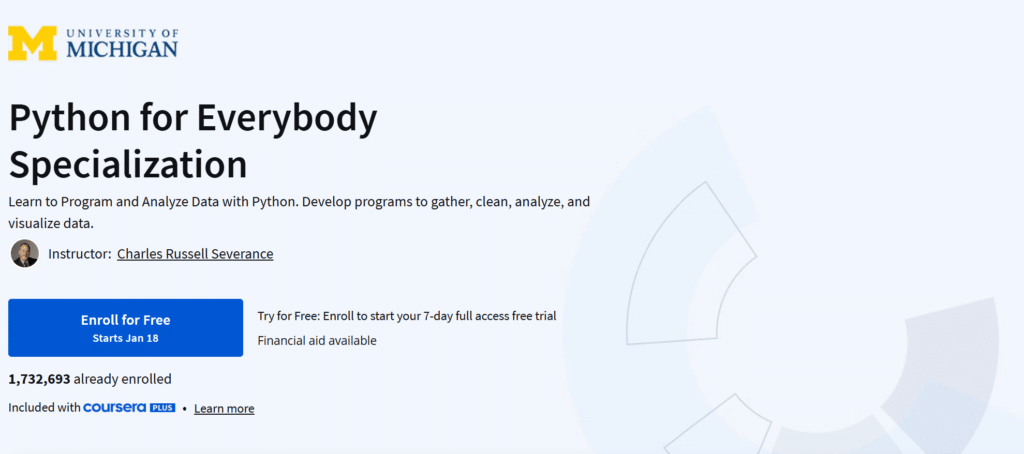
Why Python is a Top Choice for Programmers in 2025
Python is often hailed as one of the most user-friendly programming languages, making it an ideal choice for both beginners and experienced developers. Known for its simple and readable syntax, Python allows programmers to focus on problem-solving rather than dealing with complex syntax rules. This language is not only beginner-friendly but also incredibly versatile, making it a popular option for a wide range of applications including web development, data science, machine learning, automation, and more.
Key Advantages of Python
- Readability: Python’s clean, natural language-like syntax makes it easy to read and understand, which speeds up development and maintenance.
- Versatility: It can be used in various domains such as web development, data analysis, machine learning, automation, and even game development.
- Extensive Libraries: Python boasts an impressive collection of libraries and frameworks (like Django, Pandas, TensorFlow), allowing developers to solve complex problems with minimal effort.
Benefits of Learning Python
- Ideal for beginners due to its simple syntax and ease of learning.
- A wide range of resources and a large, active community make it easy to find support.
- Highly versatile, enabling use in multiple fields like web development, data science, and more.
Potential Drawbacks
- As an interpreted language, Python can be slower than compiled languages like C++ for performance-intensive tasks.
- Relies heavily on indentation, which, while making code readable, can also lead to errors if not followed strictly.
Popular Applications of Python
- Web Development (Back-end): Python is commonly used for server-side programming with frameworks like Django and Flask.
- Data Science & Machine Learning: The language’s extensive libraries like Pandas and Scikit-learn make it the go-to tool for data manipulation and AI development.
- Scripting & Automation: Automates repetitive tasks, from simple scripts to complex system operations.
- Scientific Computing: Python is widely used in research, simulations, and data analysis within scientific fields.
- Game Development: While not as common for AAA games, Python’s simplicity and frameworks like Pygame are great for building smaller games.
Average Earning Potential
Python developers can expect to earn around $125,102 annually, depending on experience and location.
Getting Started with Python
While no formal computer science background is necessary, a basic understanding of algorithms and data structures is beneficial for more advanced Python programming.
Essential Skills for Python Developers
A Python programmer should focus on developing problem-solving skills, a solid understanding of data structures, and a keen interest in domains such as data science or web development.
Cross-Platform Availability
Python is cross-platform, running seamlessly on Windows, macOS, and Linux, making it a versatile choice for all types of projects.
JavaScript
Why JavaScript is Essential for Web Development in 2025
JavaScript is one of the most important and widely-used programming languages for web development. Known for its versatility, it runs on nearly every browser and is essential for creating interactive, dynamic web pages. JavaScript is also used on the server side (via Node.js), making it a full-stack language that powers modern web applications and websites.
Key Advantages of JavaScript
- Interactivity: JavaScript allows developers to build responsive and interactive elements on web pages, such as forms, animations, and real-time updates.
- Cross-Platform: JavaScript can be run in any browser, making it accessible and platform-independent.
- Extensive Libraries and Frameworks: Popular tools like React, Angular, and Vue.js simplify and accelerate front-end development.
Benefits of Learning JavaScript
- JavaScript is the backbone of web development and is widely used for both front-end and back-end development.
- Large community and support, with plenty of resources and tutorials available for learners.
- Constant updates and improvements, making it a language that evolves with the latest web trends.
Potential Drawbacks
- JavaScript can be tricky for beginners due to its asynchronous nature and the “callback hell” problem.
- While it’s great for front-end development, managing JavaScript code across larger projects can become difficult without proper structure.
Popular Applications of JavaScript
- Web Development (Front-end): JavaScript is essential for building interactive user interfaces and dynamic content, especially when combined with HTML and CSS.
- Web Development (Back-end): With Node.js, JavaScript can be used for server-side programming, handling requests and managing databases.
- Mobile App Development: JavaScript frameworks like React Native enable developers to create mobile apps for both iOS and Android.
- Game Development: JavaScript is increasingly being used for browser-based games with HTML5 game development frameworks.
Average Earning Potential
JavaScript developers earn around $110,000 per year, though this can vary based on experience and location.
Getting Started with JavaScript
To learn JavaScript, you don’t need a deep background in computer science. Basic knowledge of HTML and CSS is helpful, but JavaScript is easy to begin with and has a supportive community to help you along the way.
Essential Skills for JavaScript Developers
A JavaScript developer should have an understanding of web development fundamentals, including HTML and CSS, along with familiarity with asynchronous programming and libraries like React or Angular.
Cross-Platform Availability
JavaScript is cross-platform and can be run on all major browsers (Chrome, Firefox, Safari), and it’s also supported on Node.js for back-end development on various operating systems like Windows, macOS, and Linux.
Java
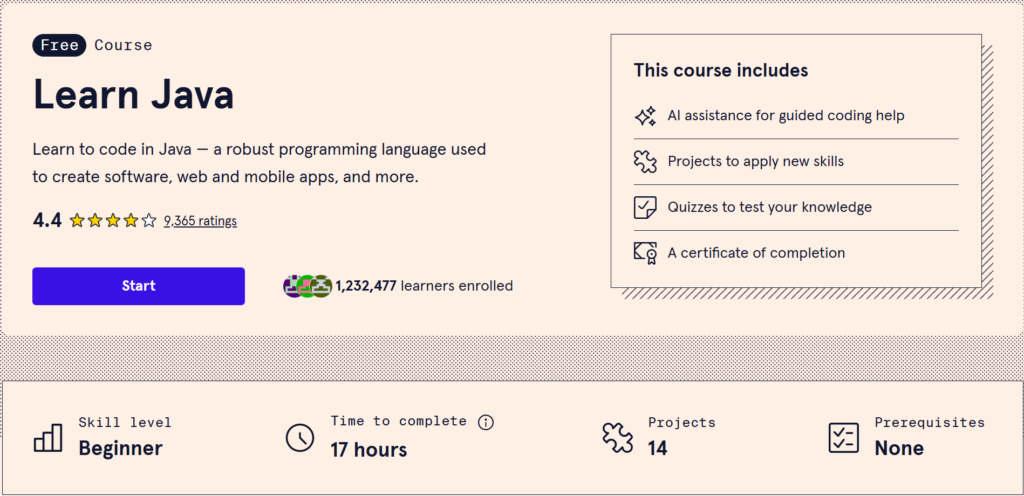
Why Java Remains a Powerful Language in 2025
Java continues to be one of the most widely-used and reliable programming languages in the software development world. Its object-oriented structure, portability, and vast ecosystem make it a preferred choice for building scalable applications. Java is especially prominent in large-scale enterprise applications, Android app development, and back-end services, where stability and performance are key.
Key Advantages of Java
- Object-Oriented: Java’s object-oriented nature allows for modular, reusable, and organized code, making it easier to maintain and extend.
- Portability: Java’s “write once, run anywhere” philosophy means that once code is written, it can run on any device that supports the Java Virtual Machine (JVM).
- Rich Ecosystem: Java has a massive collection of libraries, frameworks (like Spring and Hibernate), and tools that simplify complex development tasks.
Benefits of Learning Java
- Java is highly sought after in enterprise-level applications and Android development.
- Strong community support, with decades of resources and tutorials available.
- Known for its performance and security, making it ideal for mission-critical applications.
Potential Drawbacks
- Java code can be verbose and requires more lines compared to some newer languages like Python.
- Slower development speed due to its rigid syntax and longer code requirements.
Popular Applications of Java
- Android App Development: Java is the primary language for Android apps and is supported by the Android development environment.
- Web Applications (Back-end): Java is often used to build secure and scalable back-end services, commonly with frameworks like Spring and Java EE.
- Enterprise Applications: Java’s stability and scalability make it ideal for large-scale systems used in banking, insurance, and other industries.
- Big Data Processing: Java is used in big data frameworks like Apache Hadoop and Apache Spark, which are popular in processing large datasets.
Average Earning Potential
Java developers typically earn around $110,000 annually, with variation depending on expertise and location.
Getting Started with Java
To begin learning Java, you don’t need extensive prior programming knowledge, but an understanding of basic programming concepts will help. Many resources and tutorials are available for learners at any stage.
Essential Skills for Java Developers
A Java developer should focus on mastering object-oriented programming (OOP), familiarity with Java’s libraries and frameworks, and understanding system design principles.
Cross-Platform Availability
Java can run on any device that supports the Java Virtual Machine (JVM), ensuring its cross-platform functionality on Windows, macOS, Linux, and mobile devices (via Android).
TypeScript

Why TypeScript is Gaining Popularity in 2025
TypeScript, a superset of JavaScript, is rapidly becoming a favorite among developers due to its ability to bring strong typing and object-oriented features to JavaScript applications. TypeScript allows developers to catch errors during development rather than at runtime, offering a more robust solution for building large-scale applications. It’s widely adopted for front-end development and has excellent integration with popular JavaScript frameworks like Angular, React, and Vue.js.
Key Advantages of TypeScript
- Static Typing: TypeScript’s optional static typing helps catch errors at compile time, making it easier to maintain large codebases and avoid runtime bugs.
- Compatibility with JavaScript: Since TypeScript is a superset of JavaScript, any valid JavaScript code is also valid TypeScript code, allowing for seamless integration.
- Improved Tooling: TypeScript offers better tooling, including autocompletion, type-checking, and refactoring support, which improves productivity and code quality.
Benefits of Learning TypeScript
- It helps developers write cleaner, more reliable code with fewer runtime errors.
- Ideal for working on large, complex projects or applications with many contributors.
- A strong and growing community, as well as support from major JavaScript frameworks.
Potential Drawbacks
- TypeScript has a steeper learning curve compared to JavaScript, especially for developers new to typing systems.
- Extra build step required to compile TypeScript code into JavaScript can be cumbersome for some projects.
Popular Applications of TypeScript
- Web Development (Front-end): TypeScript is commonly used with modern frameworks like Angular and React, improving code quality and developer experience.
- Web Development (Back-end): With Node.js, TypeScript is increasingly used for server-side development, offering strong typing and better tooling support.
- Mobile App Development: TypeScript is widely used in cross-platform mobile app development through frameworks like Ionic and React Native.
- Enterprise Applications: TypeScript is favored in enterprise settings for its scalability and maintainability.
Average Earning Potential
TypeScript developers earn around $105,000 per year, with salary varying based on experience and location.
Getting Started with TypeScript
To learn TypeScript, you should first have a solid understanding of JavaScript. Knowing the basics of object-oriented programming (OOP) and modern JavaScript features will make learning TypeScript easier.
Essential Skills for TypeScript Developers
A TypeScript developer should be familiar with JavaScript, understand static typing, and be comfortable working with modern front-end frameworks like Angular, React, or Vue.js.
Cross-Platform Availability
TypeScript is platform-independent, as it ultimately compiles down to JavaScript, which runs on all major browsers and devices.
C# – C Sharp
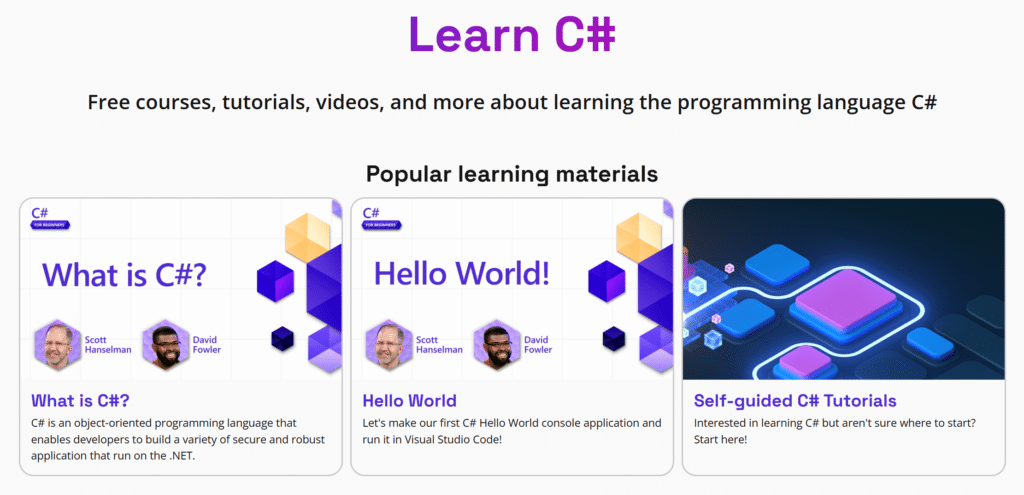
Why C# Remains a Powerful Language in 2025
C# is a modern, object-oriented programming language developed by Microsoft, known for its versatility, efficiency, and integration with the .NET framework. It is widely used in developing Windows applications, web services, and game development, especially with Unity. With its strong support for object-oriented principles and a large ecosystem of libraries and tools, C# is a go-to language for building robust, scalable applications.
Key Advantages of C#
- Object-Oriented: C# is deeply rooted in object-oriented programming, making it easier to design reusable and maintainable code.
- Integration with .NET Framework: C# works seamlessly with the .NET platform, offering extensive libraries, tools, and APIs for both web and desktop development.
- Cross-Platform Development: With .NET Core and Xamarin, C# has become a powerful language for cross-platform application development, supporting Windows, macOS, and Linux.
Benefits of Learning C#
- C# is a highly versatile language used in a variety of fields, from web development to game development.
- It provides robust tooling support through Visual Studio, making development faster and easier.
- Strong community support and continuous improvements from Microsoft ensure the language remains relevant.
Potential Drawbacks
- C# can be more complex for beginners, especially for those new to object-oriented programming.
- While C# is versatile, its use is often more centered around Microsoft technologies and environments, limiting its use in some open-source ecosystems.
Popular Applications of C#
- Game Development: C# is one of the main languages used with the Unity game engine, making it a top choice for both indie and large-scale game development.
- Web Development: C# is widely used for back-end development with ASP.NET, creating dynamic, scalable web applications.
- Windows Applications: C# remains one of the best choices for building Windows desktop applications with Windows Forms and WPF.
- Cross-Platform Mobile Apps: With Xamarin, C# can be used to build cross-platform mobile applications for both iOS and Android.
Average Earning Potential
C# developers typically earn around $105,000 annually, with salary variations based on experience and location.
Getting Started with C#
To learn C#, a basic understanding of programming concepts, especially object-oriented programming, will help you grasp the language faster. Many online resources, including tutorials and documentation, are available for beginners.
Essential Skills for C# Developers
A C# developer should be proficient in object-oriented programming (OOP), understand the .NET ecosystem, and be comfortable using frameworks like ASP.NET and Unity.
Cross-Platform Availability
C# supports cross-platform development via .NET Core and Xamarin, enabling the creation of applications that run on Windows, macOS, Linux, and mobile devices.
Kotlin
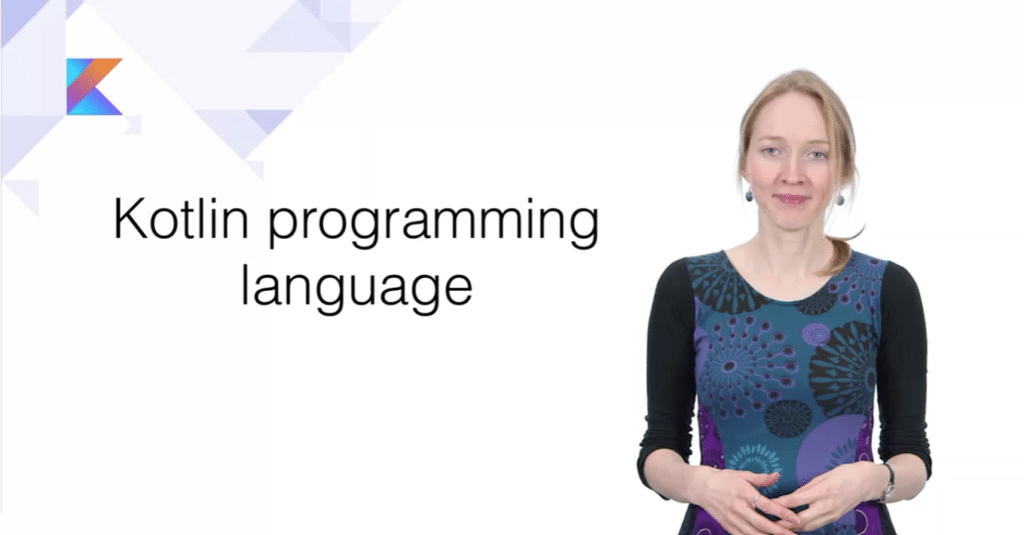
Why Kotlin is a Top Language to Learn in 2025
Kotlin, developed by JetBrains, has quickly gained popularity as a modern, statically-typed programming language. It is now the preferred language for Android app development, thanks to its concise syntax, compatibility with Java, and safety features. Kotlin also offers powerful tools for backend development and multi-platform projects, making it an excellent choice for developers looking for a versatile language with modern capabilities.
Key Advantages of Kotlin
- Concise Syntax: Kotlin’s syntax is more concise than Java, allowing developers to write cleaner, more efficient code with fewer lines.
- Interoperability with Java: Kotlin is fully interoperable with Java, meaning that you can use existing Java libraries and frameworks in Kotlin without issues.
- Null Safety: Kotlin addresses the common issue of null pointer exceptions by introducing nullable and non-nullable types, making code more reliable.
Benefits of Learning Kotlin
- Kotlin is a great choice for Android development due to its modern features, including built-in null safety and enhanced productivity.
- It’s increasingly being used for server-side development and multi-platform applications, offering a broad range of possibilities.
- Kotlin’s clear and concise syntax makes it easier for developers to write and maintain code, reducing the likelihood of bugs and errors.
Potential Drawbacks
- Kotlin’s ecosystem, while growing rapidly, is still not as large or mature as Java’s.
- Learning Kotlin could take a bit of time for developers who are already familiar with Java, especially when transitioning to Kotlin’s new features and syntax.
Popular Applications of Kotlin
- Android App Development: Kotlin is the preferred language for Android development, providing a more modern alternative to Java with fewer boilerplate code and better safety features.
- Backend Development: Kotlin is gaining traction in the backend with frameworks like Ktor and Spring, offering developers a modern, efficient way to build web applications.
- Multi-Platform Development: With Kotlin Multiplatform, developers can share code across Android, iOS, and other platforms, making it an excellent choice for building cross-platform apps.
- Web Development: Kotlin is also used for building web applications, especially in conjunction with JavaScript or Kotlin/JS.
Average Earning Potential
Kotlin developers typically earn around $95,000 annually, with the potential for higher salaries depending on experience, location, and the type of project.
Getting Started with Kotlin
If you have a background in Java, transitioning to Kotlin will be relatively easy. However, even beginners can pick it up, thanks to Kotlin’s simple syntax and great documentation available for learners.
Essential Skills for Kotlin Developers
A Kotlin developer should be proficient in object-oriented programming, understand Android development, and be familiar with Kotlin’s advanced features like null safety and extension functions.
Cross-Platform Availability
Kotlin supports cross-platform development through Kotlin Multiplatform, which allows developers to write code once and run it on Android, iOS, web applications, and more.
Swift
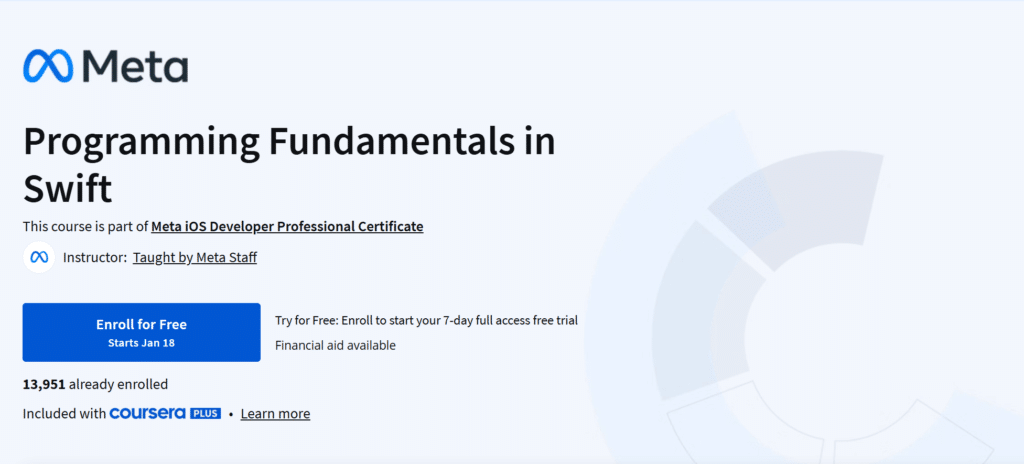
Why Swift is the Language to Learn for Apple Ecosystem Development in 2025
Swift, developed by Apple, is a powerful and intuitive programming language designed for building applications across the Apple ecosystem. From iOS apps to macOS, watchOS, and tvOS, Swift is the go-to language for developing modern, high-performance applications. Known for its safety, performance, and ease of use, Swift has become an essential language for developers aiming to work with Apple’s platforms.
Key Advantages of Swift
- Performance: Swift is designed to be fast, outperforming its predecessor Objective-C in many areas, especially in terms of speed and efficiency.
- Safety: Swift’s syntax and features help prevent common programming mistakes, such as null pointer exceptions and memory leaks, making it a safer choice for developers.
- Modern Syntax: Swift’s syntax is simple and expressive, allowing for clean, concise, and readable code, which accelerates development time and reduces bugs.
Benefits of Learning Swift
- Swift is the preferred language for iOS and macOS development, making it a valuable skill for developers looking to work on Apple apps.
- Its strong safety features and modern design make it ideal for developing reliable and maintainable applications.
- Apple’s continuous support and Swift’s growing community ensure that it remains up-to-date with new features and improvements.
Potential Drawbacks
- Swift is primarily used within Apple’s ecosystem, so if you’re looking to develop cross-platform apps, it may not be as versatile as languages like JavaScript or Kotlin.
- Though Swift is growing in popularity, it still lacks the extensive libraries and resources that older languages like JavaScript and Python offer.
Popular Applications of Swift
- iOS App Development: Swift is the go-to language for developing mobile apps for iPhone, iPad, and iPod touch, providing an intuitive experience for users.
- macOS Applications: Swift is used to build applications for Mac computers, ensuring high performance and integration with macOS features.
- watchOS and tvOS Development: Swift is also used to build apps for Apple Watch and Apple TV, offering seamless experiences across the entire Apple ecosystem.
- Server-Side Development: With frameworks like Vapor, Swift is increasingly being used for server-side development, enabling full-stack Swift applications.
Average Earning Potential
Swift developers can expect to earn around $110,000 per year, with salaries varying based on experience, location, and the type of project.
Getting Started with Swift
For those familiar with object-oriented programming and basic programming concepts, Swift is relatively easy to pick up. Apple provides excellent documentation and tools like Xcode for building apps, making it accessible even for beginners.
Essential Skills for Swift Developers
A Swift developer should be proficient in object-oriented and functional programming, understand the iOS and macOS ecosystems, and be familiar with the Apple development tools and frameworks like Xcode and SwiftUI.
Cross-Platform Availability
While Swift is primarily used for Apple’s platforms, frameworks like SwiftUI and Swift for TensorFlow are expanding its use into other domains. However, it remains most powerful within the Apple ecosystem.
Rust

Why Rust is Becoming a Favorite for Developers in 2025
Rust has emerged as one of the most loved and sought-after programming languages in recent years. Known for its performance, memory safety, and zero-cost abstractions, Rust is ideal for systems programming, embedded software, and high-performance applications. With a growing community and increasing industry adoption, Rust is quickly becoming a go-to choice for developers who require speed and reliability in their applications.
Key Advantages of Rust
- Memory Safety: Rust’s ownership system ensures memory safety without the need for a garbage collector, reducing common issues like memory leaks and race conditions.
- High Performance: Rust is designed to be fast, competing with C and C++ in terms of execution speed, making it suitable for performance-critical applications.
- Concurrency: Rust’s ownership model also makes it easier to write safe concurrent code, a critical feature for modern multi-threaded applications.
Benefits of Learning Rust
- Rust provides a unique combination of low-level control and high-level safety, making it an excellent choice for building robust and efficient systems.
- It is increasingly used in web assembly (wasm) development, IoT devices, and high-performance systems programming.
- Its strong and growing community offers plenty of resources for learning and troubleshooting.
Potential Drawbacks
- Rust has a steeper learning curve compared to more mainstream languages due to its unique memory model and ownership system.
- While Rust is growing in popularity, it is still less widely adopted than languages like Python or JavaScript, meaning there are fewer job opportunities for Rust developers.
Popular Applications of Rust
- Systems Programming: Rust is used to build high-performance operating systems, file systems, and networking software, offering low-level memory control while preventing common errors.
- Web Development: Rust is gaining popularity for web applications with frameworks like Rocket and Actix, providing speed and safety in server-side development.
- Embedded Systems: Rust is used in embedded software development, where performance and memory control are crucial.
- WebAssembly: Rust is a top choice for building fast, safe, and efficient WebAssembly applications that run directly in the browser.
Average Earning Potential
Rust developers can expect to earn around $120,000 per year, with variations depending on experience and location. Salaries can be higher in industries where performance and safety are top priorities.
Getting Started with Rust
Rust has a relatively steep learning curve, especially for developers new to systems programming. However, its excellent documentation, the official “Rust Book,” and a supportive community make it accessible for those willing to learn.
Essential Skills for Rust Developers
Rust developers should be comfortable with systems programming concepts, including memory management, and should have a strong understanding of Rust’s ownership and borrowing rules.
Cross-Platform Availability
Rust supports cross-platform development, running on all major operating systems (Windows, macOS, Linux) and has growing support for WebAssembly, making it suitable for web, desktop, and embedded systems.
Go (Golang)

Why Go (Golang) is a Top Choice for Developers in 2025
Go, also known as Golang, is a statically typed, compiled language developed by Google. It is designed for simplicity, efficiency, and scalability, making it ideal for cloud computing, distributed systems, and high-performance backend applications. Known for its fast compilation and strong concurrency support, Go has gained popularity among developers building large-scale, high-performance applications that need to handle concurrent tasks efficiently.
Key Advantages of Go
- Simplicity and Efficiency: Go has a simple, clean syntax, making it easy to learn and write, while also being highly efficient in execution.
- Concurrency Support: Go’s goroutines and channels provide an elegant way to handle concurrent tasks, making it perfect for scalable, multi-threaded applications.
- Fast Compilation: Go’s compiler is extremely fast, enabling quick turnaround times in the development process, which speeds up productivity and development cycles.
Benefits of Learning Go
- Go is widely used in cloud-based applications and microservices, offering a strong skill set for developers interested in modern web infrastructure.
- Its simplicity and performance make it suitable for building both small and large-scale systems.
- Go is highly scalable, thanks to its built-in concurrency model, which simplifies complex parallel processing tasks.
Potential Drawbacks
- Go’s simplicity can be seen as a limitation, as it lacks certain features like generics (though they are being introduced in the latest versions).
- Its standard library, while comprehensive, may not be as extensive as other languages like Python or JavaScript.
Popular Applications of Go
- Cloud Services and Distributed Systems: Go is widely used in cloud infrastructure, with major projects like Docker and Kubernetes built in Go.
- Microservices: Go is favored for building microservices due to its speed, simplicity, and concurrency model.
- Web Servers and APIs: Go is used for creating fast, scalable web servers and APIs, handling high traffic and numerous simultaneous connections.
- DevOps Tools: Go’s efficiency and portability make it a popular choice for building tools used in continuous integration and deployment (CI/CD) pipelines.
Average Earning Potential
Go developers earn an average salary of around $115,000 per year, with variations depending on experience, location, and the type of development work.
Getting Started with Go
Go is a great language for beginners due to its simplicity. Familiarity with programming fundamentals such as data structures, algorithms, and basic networking concepts will be helpful, but Go is designed to be easy to pick up.
Essential Skills for Go Developers
A Go developer should be proficient in handling concurrency with goroutines and channels, be familiar with building web applications using Go’s frameworks, and understand cloud infrastructure and networking basics.
Cross-Platform Availability
Go is designed to be cross-platform, compiling to standalone binaries that can run on various operating systems (Windows, macOS, Linux), which makes it suitable for a variety of environments.
SQL
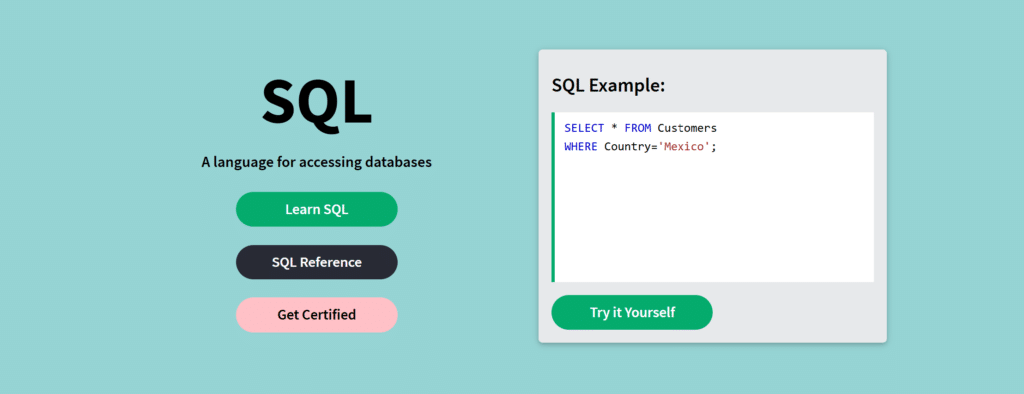
Why SQL is Essential for Data Management in 2025
SQL (Structured Query Language) is the standard language for managing and querying relational databases. It is a cornerstone for data manipulation, widely used in industries ranging from finance to healthcare. Whether you’re working on data analysis, backend development, or application integration, SQL remains indispensable for managing structured data efficiently.
Key Advantages of SQL
- Universal Database Language: SQL is supported by all major relational database management systems (RDBMS), including MySQL, PostgreSQL, Oracle, and Microsoft SQL Server.
- Ease of Learning: SQL’s declarative syntax is relatively easy to learn, even for those new to programming or database management.
- Efficient Data Management: SQL excels at handling, querying, and organizing large datasets quickly and efficiently, making it essential for data-driven applications.
Benefits of Learning SQL
- SQL skills are highly in demand across industries, as almost all applications rely on databases for storing and retrieving data.
- It is a beginner-friendly language, making it accessible to professionals without a strong technical background.
- SQL provides foundational knowledge that integrates seamlessly with other technologies, such as Python, Java, and cloud-based platforms.
Potential Drawbacks
- SQL is designed for structured data, so it’s less effective for unstructured or semi-structured data compared to newer database technologies like NoSQL.
- While SQL itself is straightforward, mastering advanced concepts such as indexing, performance optimization, and complex joins requires additional effort.
Popular Applications of SQL
- Data Analysis: SQL is used to extract and analyze data from databases for insights and reporting.
- Backend Development: SQL powers the backend of web and mobile applications by enabling data storage and retrieval.
- Business Intelligence (BI): SQL plays a critical role in building dashboards and visualizations for business insights.
- Database Administration: SQL is integral for creating, maintaining, and optimizing databases.
Average Earning Potential
Professionals skilled in SQL, such as data analysts and database administrators, earn an average salary of around $95,000 per year. Advanced SQL skills, especially in combination with other technical expertise, can command even higher salaries.
Getting Started with SQL
SQL is an excellent language for beginners. Many free and paid resources, including online courses and tutorials, are available to help you learn the basics of querying, inserting, updating, and deleting data in relational databases.
Essential Skills for SQL Users
Proficiency in SQL involves understanding how to write efficient queries, perform joins and aggregations, and design and manage relational database schemas. Advanced users should also be familiar with indexing, stored procedures, and optimization techniques.
Cross-Platform Availability
SQL works with virtually all relational database systems, making it platform-independent. Whether on-premises or cloud-based, SQL is universally applicable for database management.
FAQ
What is the most useful programming language to learn?
Python is often considered the most useful due to its versatility, readability, and applications in data science, web development, and machine learning.
What’s better, Python or C++?
It depends on your goals. Python is better for data science, web development, and machine learning, while C++ is ideal for systems programming and performance-critical applications.
Which programming language should be learned first?
Begin with Python or JavaScript, as they are beginner-friendly, widely used, and provide a solid foundation for other programming languages.
Should I learn Python or C++ as my first language?
Python is a better choice for beginners because of its easy-to-read syntax and extensive learning resources, while C++ is more suited for understanding low-level programming concepts.
Should I learn JavaScript or Python?
Choose Python if you’re interested in data science or automation, and JavaScript if you want to focus on web development.
Who earns more, C++ or Python?
Salaries depend on the field, but Python developers often earn more in data science and machine learning, while C++ is lucrative in game development and embedded systems.
How long does it take to learn Python?
You can learn Python basics in 2-3 months with consistent practice, but mastering it for specific fields may take longer.
Is C++ worth learning in 2024?
Yes, C++ remains essential for systems programming, game development, and performance-critical applications in 2024.
What can C++ do that Python cannot?
C++ offers more control over memory management and is faster, making it ideal for real-time applications like games and embedded systems.
Is Python hard to learn?
No, Python is considered one of the easiest programming languages to learn due to its intuitive syntax and vast community support.
How long does it take to learn C++?
Learning the basics of C++ can take 3-6 months, but mastering advanced features like memory management may require a year or more.
Should I learn programming in 2025?
Absolutely! Programming is a valuable skill in 2025, opening doors to careers in technology, data science, AI, and more.
Which coding language is most in demand?
Python, JavaScript, and SQL are among the most in-demand languages, with growing interest in Rust and Go for specialized fields.
Conclusion
Choosing what programming language should I learn in 2025 is an important step in your journey as a developer. The best language for you depends on your goals, interests, and the field you want to pursue. Python, JavaScript, Java, and emerging languages like Rust and Kotlin each have unique strengths, catering to a variety of use cases from web development to machine learning and systems programming.
In 2025, the demand for skilled programmers continues to grow across industries, making it an ideal time to start learning. Whether you’re a beginner looking for an accessible starting point or an experienced developer seeking to expand your skill set, there’s a language that suits your needs. With dedication and practice, you can master the programming tools that will shape the future of technology.
